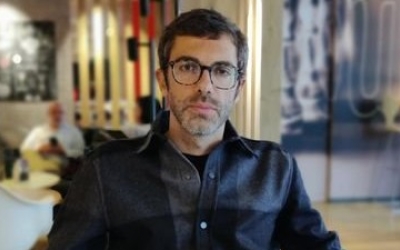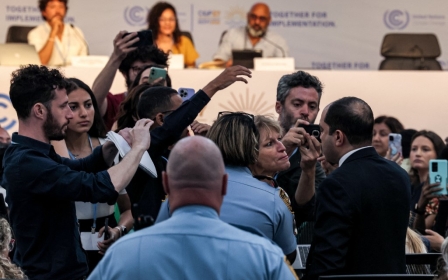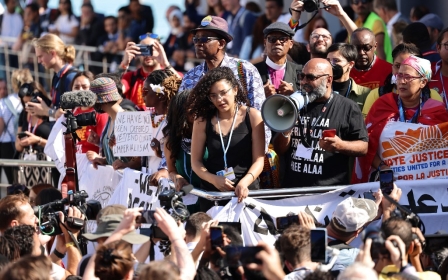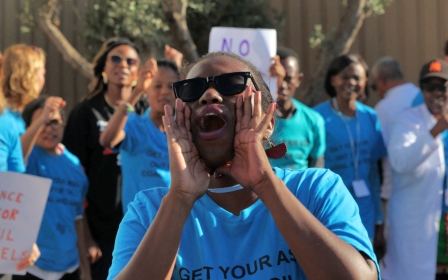Cop27: Germany accuses Egypt of monitoring and disrupting its events
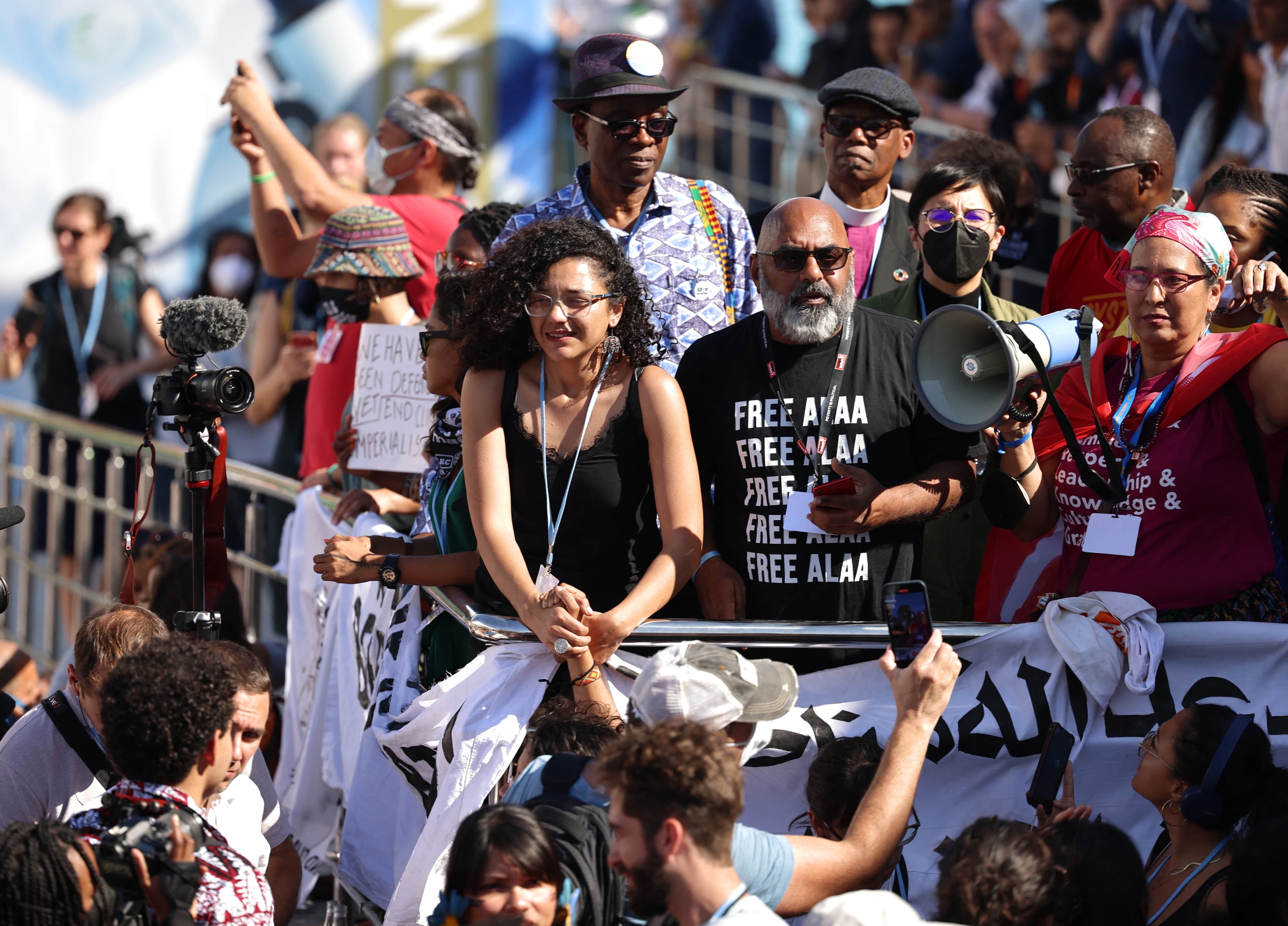
Germany has complained to Egypt's government that the host country's security services have been surveying its activities at the UN climate summit (Cop27), according to German media.
Egyptian security services have been accused of monitoring and filming events at Germany’s pavilion at the Sharm el-Sheikh resort where the conference is held.
The German embassy in Egypt is reportedly the institution that lodged the complaint with Cairo and asked for the monitoring to stop.
"We expect all participants in the UN climate conference to be able to work and negotiate under safe conditions," said Annalena Baerbock, Germany's foreign minister, according to Deutsche Presse-Agentur (DPA).
"This is not just true for the German but for all delegations, as well as representatives of civil society and the media."
New MEE newsletter: Jerusalem Dispatch
Sign up to get the latest insights and analysis on Israel-Palestine, alongside Turkey Unpacked and other MEE newsletters
Human rights focus
Germany’s activities focused on highlighting the climate crisis as well as Egypt’s human rights situation, including the situation of political prisoners.
Both Human Rights Watch and Amnesty International participated in such events, as well as Sanaa Seif, an Egyptian activist and film editor who was previously imprisoned in Egypt, and who is also the sister of imprisoned activist Alaa Abd el-Fattah.
Germany’s events delivered strong criticism towards the host country’s government, as Egyptian officials who joined the talks interrupted the events by taking photos, videos and using other disruptive interventions.
At the start of Cop27, an Egyptian MP was escorted by security out of a hall after heckling speaker Sanaa Seif.
Amr Darwish, a pro-government parliamentarian, was captured on video grabbing a microphone and assailing Seif and other speakers in Arabic before security intervened.
Egypt denies claims
Egypt’s security services rejected the claims and said that the security of events was in the remit of the United Nations team at the conference, while theirs was to secure the outside halls and the city.
But according to DPA, Egyptian staff have been consistently insisting on being present during closed sessions by foreign participants.
"It is very obvious that the Egyptian authorities are monitoring human rights activities," Hossam Bahgat, founder of the human rights organisation the Egyptian Initiative for Personal Rights, told DPA.
"The only reason they haven't used physical violence yet is that we're in a UN-controlled area."
The UN said it was investigating the complaints and admitted that national police was part of the event’s security.
The German delegation has warned speakers about the risks they face due to their appearances at the summit, according to sources DPA spoke to.
Egyptian security officers have also been spotted undercover at climate protests near the resort where the conference is held.
Egypt’s human rights record
The international conference has been overshadowed by criticism of the human rights record of President Abdel Fattah el-Sisi.
Since Sisi came to power in a 2013 military coup, his government has run roughshod over basic components of governance, with civil-society organisations crippled by draconian laws prohibiting NGOs from engaging in public affairs.
Egyptian and international rights groups have been campaigning under the slogan “No climate justice without open civic space”, underlining the lack of respect for civil liberties under Sisi's government.
In particular, the case of the hunger-striking detainee Alaa Abd el-Fattah has shone a light on the abuses committed against tens of thousands of political prisoners languishing in Egyptian jails.
While Egypt is a signatory of the International Covenant on Civil and Political Rights, Human Rights Watch has repeatedly accused Sisi of overseeing the country’s worst campaign against human rights in its modern history.
Under Sisi, Egypt has become the world’s third worst jailer of journalists, according to the Committee to Protect Journalists. Independent media has been crushed and criticism of Sisi or his government is punishable by jail.
Sisi's government has also resorted to travel bans as a tool of repression against its opponents, according to rights groups. Under Sisi, Egypt has become the third-most prolific executioner after China and Iran, according to Amnesty International’s 2020 tally.
In 2021, Egypt issued the largest number of death sentences worldwide. Many of those sentenced to death had been subject to torture, enforced disappearances, and politicised mass trials, rights groups have said.
Middle East Eye delivers independent and unrivalled coverage and analysis of the Middle East, North Africa and beyond. To learn more about republishing this content and the associated fees, please fill out this form. More about MEE can be found here.


